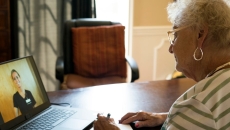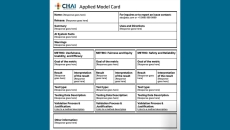Medical Devices
In a preview of their HIMSS25 panel discussion, Erik Adams of BCG and Gunnar Trommer of BCG X explain how much capital is required to develop and commercialize artificial intelligence-enabled medical devices in the U.S.
SPONSORED
This article provides actionable strategies that healthcare organisations can use to optimise their shared mobile device programs with the technology and management practices needed to achieve high-quality, patient-centred care.
At HIMSS25, Claroty's Ty Greenhalgh and St. Luke's University Health's Mike Powers will unveil the HSCC's updated MC2 Framework and address challenges in negotiating medical device cybersecurity contract provisions.
Investing in women's health is not just a matter of improving healthcare outcomes – it's a smart economic strategy with significant benefits.
Inequities that already exist in the healthcare system, and may be amplified by LLMs, could be addressed through the proving ground of artificial intelligence assurance labs, according to Brigham Hyde, CEO of Atropos Health.
After over two decades, Institut Jantung Negara has successfully implemented a hospital-wide EMR system, fully integrating technology-enabled patient care.
A private healthcare provider in India went from manual to automated patient monitoring.
The company will use the funds to accelerate development of its screening device.
As the artificial intelligence policies developed under the Biden Administration come into focus and a new inauguration approaches, one healthcare AI leader says he's optimistic about the future of public-private partnerships in the space.
The Coalition for Health AI is offering its Applied Model Card artificial intelligence transparency tool on GitHub to build "the kind of trust that we need," says its CEO Dr. Brian Anderson.










